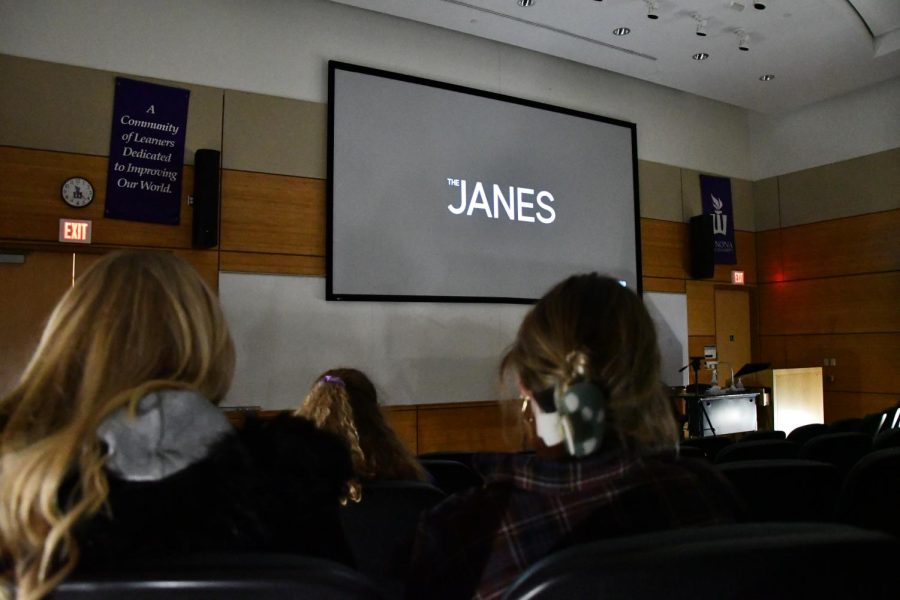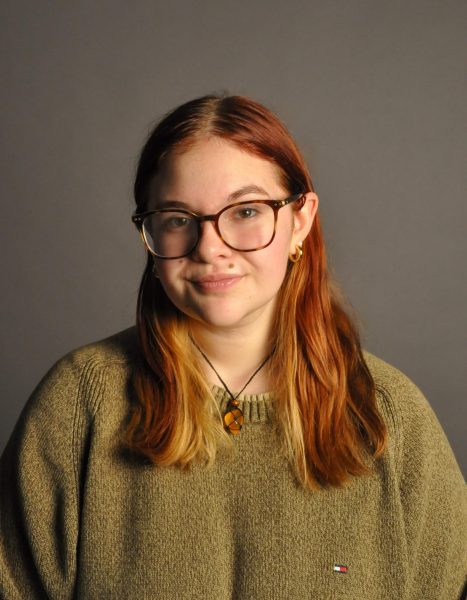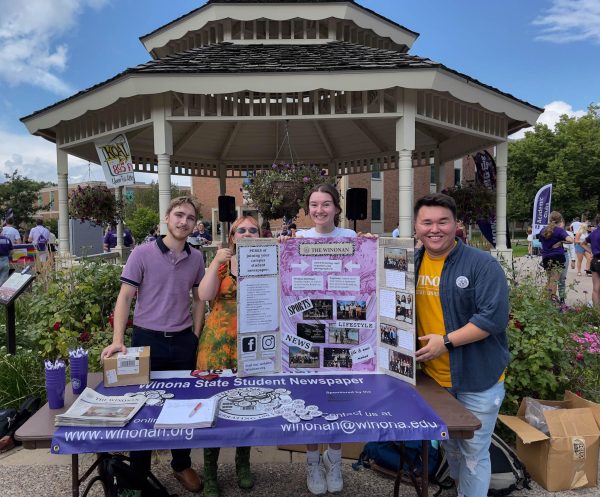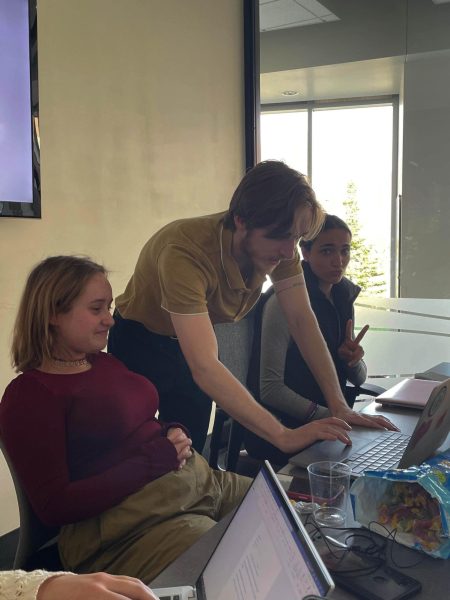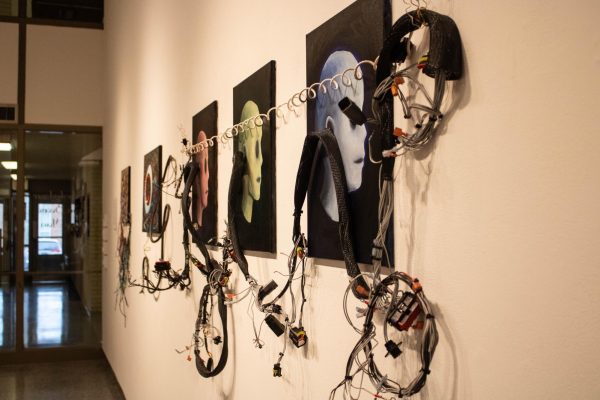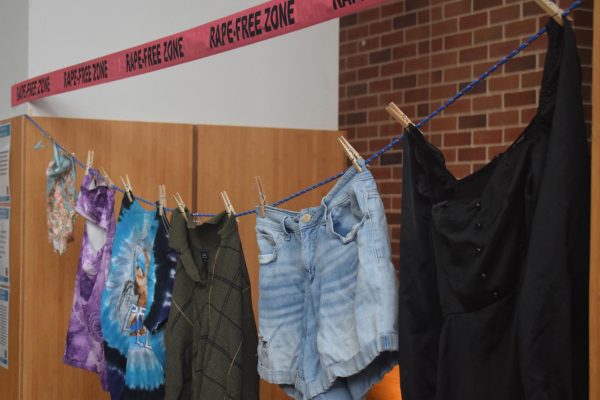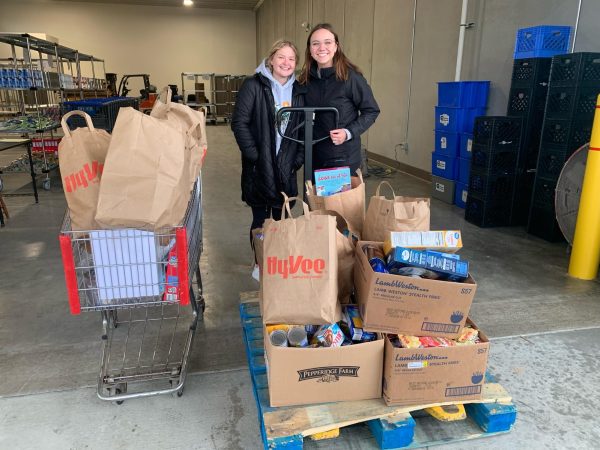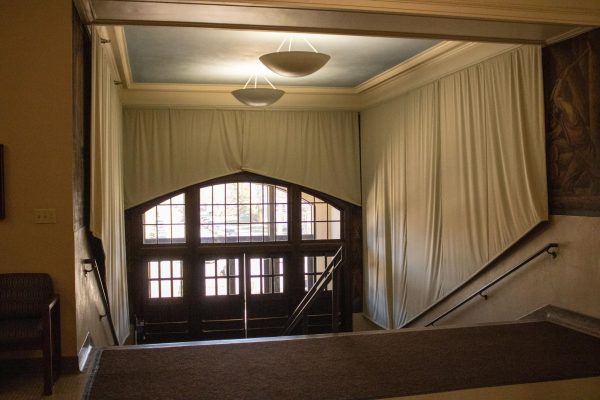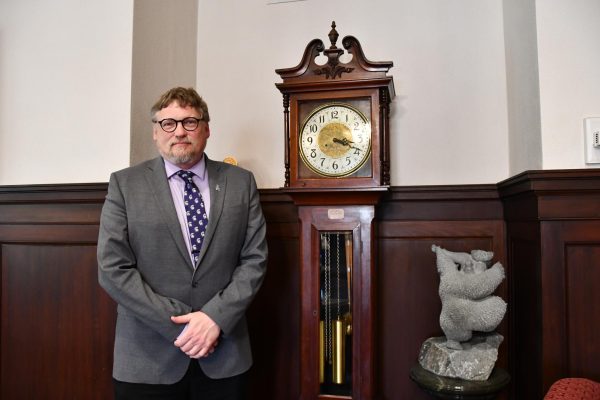Film screening, “The Janes” reminds viewers of pre-Roe v. Wade times
A documentary titled, “The Janes” was screened for students and faculty at Winona State University on Jan. 23, 2023. The film centers around life before Roe v. Wade and takes a deep-dive on the steps women took to fight for their rights. Jessica Weis, Co-President of WSU Students for Reproductive Justice, worked along side the Women’s Gender and Sexuality Studies department and the History Department to host this event in the Science Laboratory Center.
February 3, 2023
“I had no other options. I wanted it over with, and I didn’t care how it was done. I was that desperate.”
These were the first few sentences in the Documentary “The Janes” which played in Winona State University’s Science Laboratory Center on Jan. 23, 2023.
Almost a year before then, “The Janes” was released on HBO Max on Jan. 24, 2022. The documentary follows a pre-Roe v. Wade time in the 1960s and early 70s where a group of women joined together to create an underground network called ‘Jane’ for women with unwanted pregnancies. They provided this low-cost and free illegal abortions to around 11,000 women.
“I was surprised at the generosity in the women’s hearts to do the services for free or whatever women could afford,” fourth-year student Jessica Weis said. “What those women did changed the lives of so many individuals.”
Weis is the Co-President of WSU Students for Reproductive Justice. Weis worked closely with the Women’s Gender and Sexuality Studies department and the History Department to make this event a reality. Weis also credits Women’s Gender & Sexuality Studies professor Dr. Klinker and History professor Dr. Hyman for making this event possible. The Frozen River Film Festival as well as the Students for Reproductive Justice worked to make this event possible.
“This film is very relevant. [It] details what life was like before Roe v. Wade,” Weis said. “It inspires us to continue to build community and to do what it takes to maintain our bodily autonomy- despite others including the government tells us.”
Before the screening, students and community were greeted by cake with the words ‘Smash Patriarchy’ written in purple frosting and a long table filled with free books about women, intersexuality, racism and much more.
“There is power in mutual aid and community.” Weis said. “Any fight for bodily autonomy is a valid and important one.”
Before the screening, papers were passed out to the audience about resources and ways to support the TakeAction MN group. This multi-racial, multi-generational and gender affirming group is working together to ‘build power for a government and economy that works for all of us.”
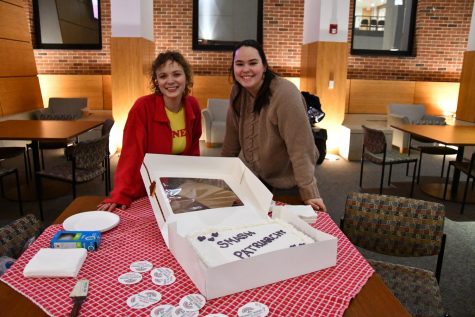
(Elly Herrick)
Third-year psychology student Jordan Becvar came to the screening to educate herself on Roe V. Wade and was not expecting to be impacted the way she was after the screening,
“‘The Janes’ painted a really clear and solid picture of what will happen if we go back [to the pre-Roe v. Wade era],” Becvar said. “It makes me scared that people will start to do that again because they have no other option.”
Director of “The Janes”, Tia Lessin, commented in a Cornell article that she wanted to make this film because she wanted others, especially women, to understand “what it looks like when women are criminalized for getting basic health care.”
“It’s important to me that [the film] didn’t hold back, it showed everything that these people were doing to themselves and that there was a group who stood up to those laws,” Becvar said. “It’s very important to see that and believe that it’s now our turn to stand up for these women.”
Walking home from the event, a thought in minds like Becvar were “do we have to do it all over again?”























































